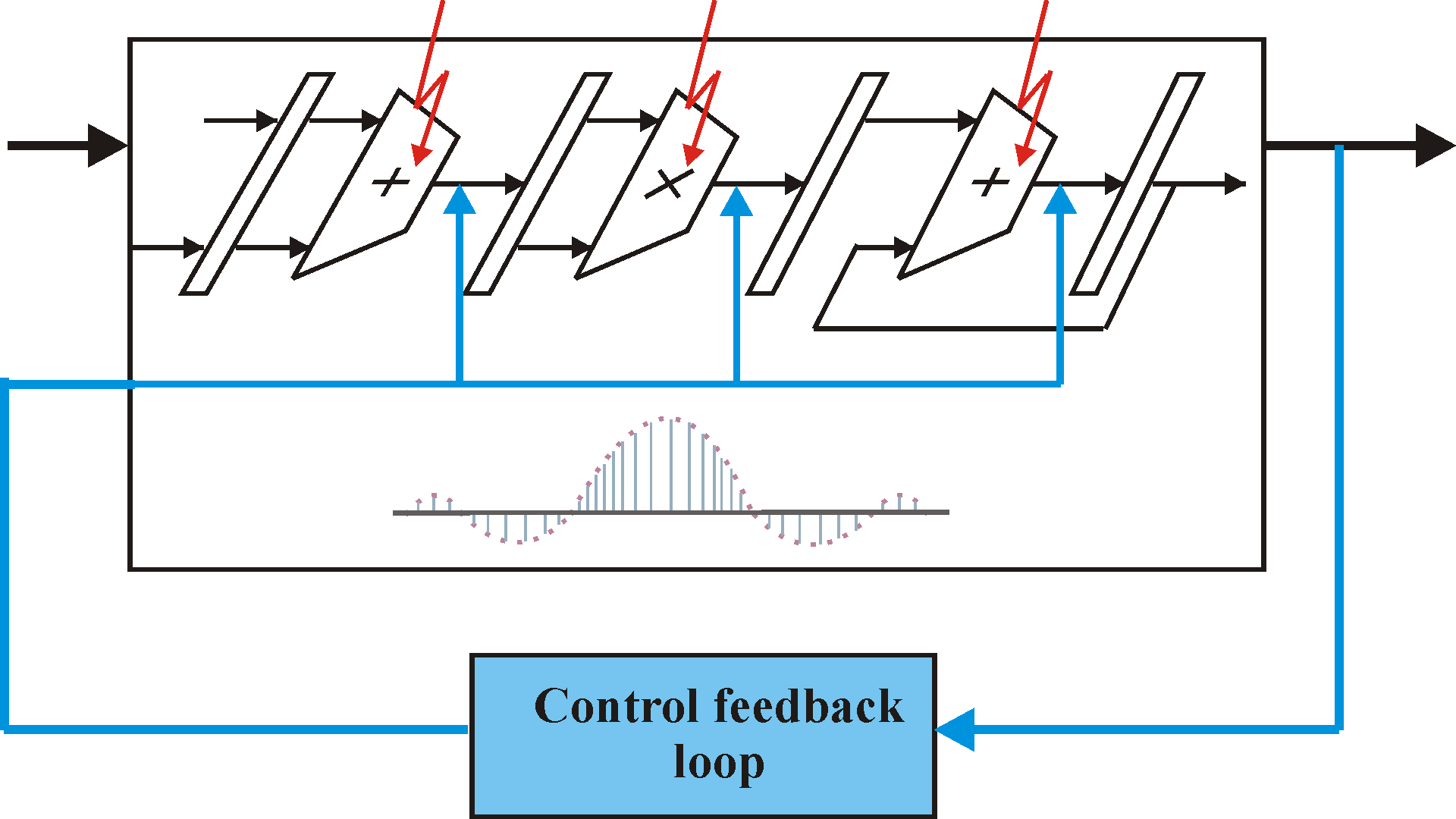We aim to develop a novel control theory methodology using input-output process models for error mitigation in signal processing data-paths that operate in radiation prone environments. In this approach, difference equations are used to characterize the process with perturbation corresponding to faulty digital circuits. The proposed model captures higher order input-output dynamics, where inputs and outputs take continuous values within their variation domains. We target to build scalable process models that address complex signal processing pipelines, such as the ones found in IP cores for widely used transforms (e.g. FFT, DCT). The use cases have a high number of inputs, outputs and data registers (e.g. 512-point FFT), each represented on 16/18/24/32 bits. Based on these models, a correction feedback controller mitigating the errors within the pipeline will be designed. By employing difference equations based models, we aim to address the main shortcomings of the control theory inspired technique developed within the ESA ITI REDOUBT activity, that reached TRL 2, based on input-state-output models: (i) high number of states, as each state corresponds to a register value during a clock cycle – this impacts the scalability, (ii) non-linearity of the model that requires complex non-linear controllers – this adds significant cost overhead. The REDOUBT project followed the general case, where multiple RTL operations corresponding to data registers being considered. In the proposed activity, we target IP cores where the majority of the data registers are loaded with results of a single RTL operation. This will allow us to employ less complex models that will mitigate scalability issues of input-state-output models, and yield the best trades-off low-cost implementation, fault tolerance and functional robustness. Thus, the application of advanced distributed optimizations for large scale systems, at this level, has been ruled out given their significant overhead.

